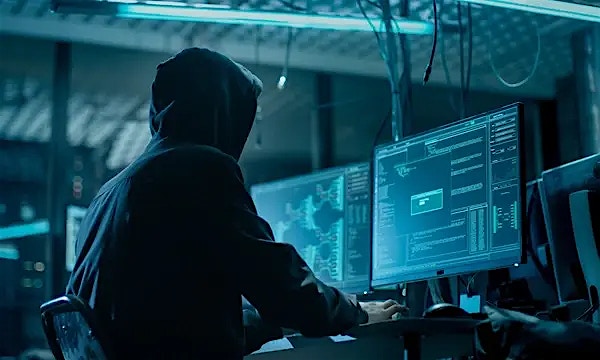Ahead of the Asia Women in Tech Leaders Award 2025 (AWTLA), HCLTech Trends and Insights spoke to Alexandra Mercz, Director of Cybersecurity at Synterra Asia and winner at the 2024 awards.
In this Q&A, she discusses a range of topics, including how organizations can drive meaningful change when it comes to improving levels of diversity, equity and inclusion (DE&I), why a secure future relies on diverse teams, the importance of mentorship and how to foster a more inclusive environment for women in tech.
1. Improving DE&I is crucial in driving innovation and solving issues like the skills shortage. But the fact remains that when it comes to gender, the percentage of women in tech hovers around 27%, with fewer still in leadership positions. This has remained approximately the same for years. What can organizations and industries do to truly and effectively improve DE&I in tech?
To effectively improve DE&I in tech, organizations must address systemic issues throughout the talent lifecycle. Recent data from the Skillsoft Women in Tech Report 2024 reveals that women comprise only 28% of computer and mathematical occupations globally, dropping to 22% in European tech companies. Establishing sponsorship programs that pair high-potential women with senior leaders can boost the likelihood of women asking for stretch assignments. Addressing the mid-career exodus is crucial, as 56% of women leave tech by mid-career, double the rate of men majorly due to societal issues like lack of childcare or biases. Introducing flexible work policies and targeted retention programs has shown to decrease female attrition rates by 50% in some companies. Tackling pay inequity is essential, regular pay audits with commitments can make a significant impact. Lastly, investing in upskilling, particularly in AI and machine learning, where 41% of women in tech express interest, can drive engagement and retention.
2. What technology and business trends are you seeing in your industry, and how is having a diverse workforce important in adopting and implementing these trends?
In my career leading cybersecurity teams, I've witnessed a remarkable evolution in our industry. The integration of AI has transformed our approach from reactive to proactive, allowing us to anticipate and neutralize threats with great efficiency.
However, the most impactful change I've witnessed isn't technological, it's the power of diverse teams. On a recent project, we faced a particularly complex security challenge. The breakthrough came when we assembled a team with varied expertise: data science, behavioral psychology and traditional security combining technical and non-technical skill sets and different viewpoints. Their combined perspectives led to an innovative solution that significantly reduced our client's vulnerability.
Diversity and inclusion in technology is a strategic imperative for effectively navigating the complex security landscape ahead. Our ability to secure our digital future hinges on our capacity to approach problems from multiple angles, a strength that diverse teams inherently possess.

Alexandra Mercz, Director of Cybersecurity, Synterra Asia
3. Given your commitment to challenging unconscious biases in the cybersecurity field, what specific strategies do you believe organizations can implement to foster a more inclusive environment for women in tech?
In my experience with diversity initiatives, certain approaches consistently deliver results. Bias awareness workshops, when executed thoughtfully, can be transformative. I've witnessed skeptical executives have genuine moments of realization during these sessions, leading to meaningful changes in team dynamics. Setting concrete targets for female applicants in hiring serves a dual purpose: it expands our talent pool and introduces fresh perspectives. Pay equity audits, when conducted with full transparency, build trust and demonstrate a genuine commitment to fairness. Creating an inclusive environment requires ongoing dedication and the flexibility to adapt based on both our successes and missteps. While no perfect formula exists, these strategies have proven effective in creating a more diverse and equitable workplace in the tech industry.
4. You actively mentor women in cybersecurity. Can you share a transformative experience from your mentoring journey that highlights the importance of representation and support for women pursuing careers in this industry?
One transformative experience from my mentoring journey involved a mentee who was highly proactive in pursuing a career in cybersecurity. She had an impressive background in software development and had independently completed several cybersecurity certifications. However, she needed guidance on how to effectively structure her efforts and position herself for a role in the field.
Through our sessions, we focused on strategically aligning her existing skills with the specific requirements of cybersecurity positions. We identified key areas where her software expertise could be leveraged as unique strengths in security contexts. Her eagerness to learn and her ability to quickly incorporate feedback were standout qualities.
We developed a targeted plan to fill knowledge gaps and showcase her problem-solving skills in security scenarios. This involved crafting a portfolio of her security projects and articulating her vision for integrating development and security practices.
Her dedication paid off when she secured the role, impressing interviewers with her technical acumen and fresh perspective. It's been rewarding to see her thrive in her new role and begin mentoring others, further expanding the network of support for diverse talent in cybersecurity.
5. In your experience working with both multinational institutions and startups, how have you seen diversity within teams contribute to better outcomes?
Throughout my career, I've had the opportunity to work with a wide range of organizations, from global corporations to dynamic and nimble startups. One consistent observation has been the tangible impact of diverse teams on business outcomes.
In my experience, diversity within teams has consistently led to better outcomes in both multinational corporations and startups. Take Intel, for example. After launching a comprehensive diversity initiative in 2015, they saw a marked improvement in innovation and market responsiveness. The increase in women and underrepresented minorities in technical and leadership roles correlated with a 16% rise in patents filed by these groups. This diversity of thought translated into products that better addressed a wide range of customer needs.
In the startup world, Canva's success story stands out. Their diverse team, led by one of the few female CEOs in tech, has been crucial to their rapid growth and adaptability. During the pandemic, Canva's diverse perspectives enabled a quick pivot to remote work tools, resulting in a 50% usage increase. This ability to swiftly respond to market changes while maintaining a long-term vision has been key to their growth from a startup to a $40 billion valuation in just a decade.
6. How important are events like AWTLA in championing diversity in tech?
As an AWTLA awardee this year, I've experienced firsthand the impact of events that champion diversity in tech. AWTLA stands out for its focus on recognition and visibility for women in our field.
These events serve a crucial purpose in our industry. They highlight role models, demonstrating the diverse paths available in tech. I've seen how this visibility inspires younger women, showing them what's possible in a field where we're still underrepresented, especially in leadership roles.
Events like AWTLA challenge perceptions about women's roles in tech. They provide a platform that boosts confidence and encourages more women to pursue and persist in tech careers. In my view, this recognition is a key driver in promoting diversity in our industry, creating a ripple effect that extends far beyond the event itself.
What struck me most about AWTLA was the sense of community it created. The networking opportunities were invaluable, leading to meaningful connections and collaborations. While formal mentorship isn't part of the program, I found that these connections often evolve into supportive professional relationships.
7. Do you have any advice for women wanting to progress in the industry?
For women wanting to progress in the tech industry, my advice is to embrace continuous learning and stay current with industry trends. Actively seek out mentors and sponsors who can guide your career and provide valuable insights. Build a strong professional network by attending industry events and joining professional associations. Do take on challenging projects — these are opportunities to demonstrate your capabilities and grow your skills. Advocate for yourself and your achievements, make sure your contributions are recognized. Develop both technical and non-technical skills, as leadership roles often require a balance of both. Be resilient in the face of setbacks and support underrepresented minorities in the industry — your success can pave the way for others.






